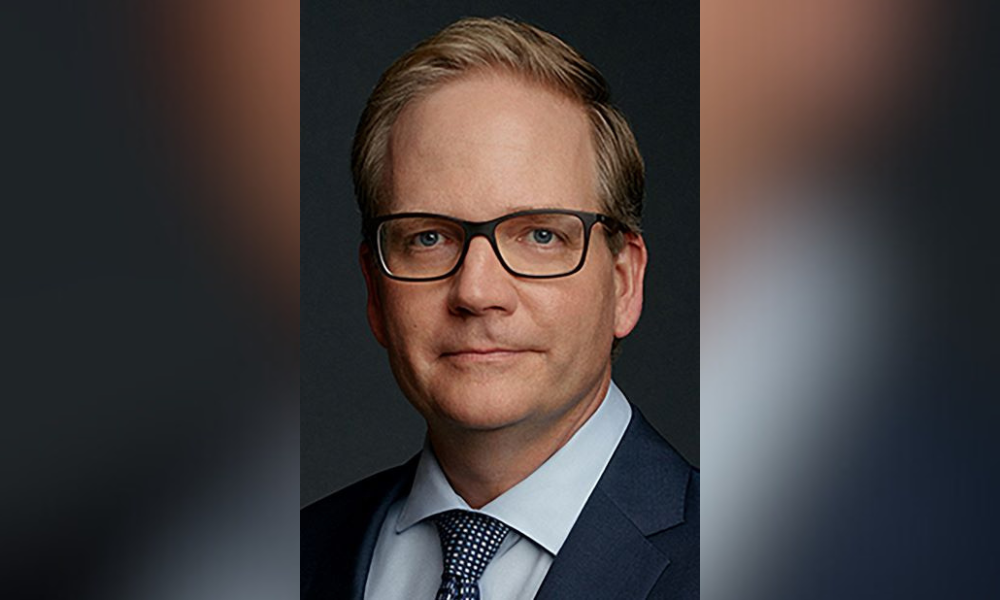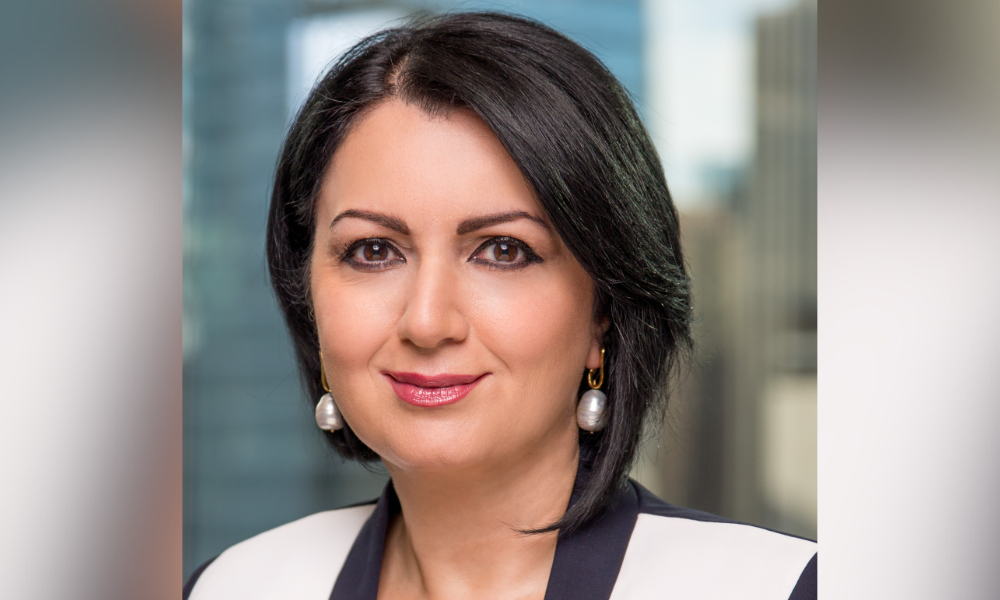President David Gunn unpacks the firm’s strategic investments, appeal to advisors, and holistic wealth approach

Over the past five years, business has boomed for Edward Jones Canada, growing from $30 billion to $52 billion in AUC (as of September 2023).
That expansion – which has made the firm Canada’s second-largest independent full-service brokerage – happened under the watch of its president David Gunn. And from his point of view, it speaks to the organization’s commitment to bridge a gaping need.
“We have the best people, the right investments, and the inspiration to deliver comprehensive planning and advice to the millions of underserved Canadians," Gunn (pictured above) tells Wealth Professional.
“We’ve been hiring advisors strategically, and we’re seeing a desire among our advisors and branch teams to support Canadians. They really want to help by building deep, personal, and trusting relationships."
Speaking to the disenchanted
Citing a report from EY, Gunn says an estimated 50% of Canadians are planning to change advisors over the next three years. Over the past half-decade, Edward Jones has positioned itself to be on the winning side of that trend by focusing not just on high-net-worth and ultra-high-net-worth investors, but also on the $250,000 to $2-million segment of the retail market.
With a growing awareness of conflicts around proprietary products, he says both clients and advisors have become disenchanted with dealer firms that only allow recommendations from within their own walled gardens. Anecdotally, he says many new advisors at the firm enjoy being able to work with a wide shelf of products from providers across the country.
“We’ve made significant traction with attracting licensed advisors,” he says. “Five years ago, we had 780 advisors. Today, we have 850 – including 28 that came over in 2023 – which puts us among the top firms in terms of percentage growth in number of advisors.
“A number of other firms will have advisors licensed as portfolio managers, and in many cases, that's their value prop. We do not have portfolio managers as financial advisors, and we've made that strategic shift,” Gunn adds. “We’ve had advisors come to us and say ‘I don't want to be a PM anymore. I would like to leverage the Edward Jones discretionary platform and spend time with my clients to look at their estate planning needs, their insurance needs, and their overall focus in life.’”
Edward Jones Canada has also made key decisions around where it will invest and not invest. With the increased adoption of hybrid work models, the firm has pared back its investment in real estate; that includes reducing its head office in Square One Mississauga from 80,000 square feet across four floors, to 40,000 feet on two floors. That’s happened even as it hired more people to support its branch teams.
“We’ve strategically located our branch offices in communities, closer to residential areas,” Gunn says. “We’re seeing significant interest among advisors in having that model, as opposed to having to take long commutes, potentially downtown in some big cities.”
Over the past year, Edward Jones has also evolved its branch office models. In contrast to the one- financial advisor, one-administrator offices it’s had traditionally, the firm shifted its focus toward establishing multi-advisor offices last year. By the end of 2023, he says there will be around 85 Edward Jones multi-advisor branch offices, each shared by at least two advisors.
“Each of our advisors has their own profit and loss statement, where they can earn not just salary commissions, but they actually run their own business inside our P&L,” Gunn says. “They have an opportunity to manage their costs and choose how they invest in their branch, not just have costs downloaded to them. I think that's very, very attractive.”
Doing money differently
To raise the bar of service for clients, Gunn says a number of branch office administrators have become licensed as registered branch associates. And as clients look for more comprehensive planning and advice, the firm is also supporting both new and veteran advisors with opportunities to get professional training and development, encouraging all employees to adopt a test-and-learn growth mindset and to embrace the journey the firm is on.
“Our objective is to increase the number of financial advisors with a designation from 22% to 50% By 2025. Ultimately, we want to lead the industry in Canada for the number of CFPs,” Gunn says. “This year alone, we had 194 of our advisors enroll in new designations, which was double what we thought it would be.”
For clients with more complex situations, Edward Jones also supports advisors through its Client Consultation Group (CCG). Based in its home office, the CCG includes lawyers, accountants, and other trusted specialists who can offer their expertise to unpack issues around cross-border planning, real estate investments, gifting, and expats moving to and from Canada, among others.
Looking ahead to the next five years, Gunn says the firm will continue to adopt the startup-like mindset that’s served it well since 2018, emphasizing Edward Jones having a “skies the limit” approach to continue propelling the firm forward.
Among several strategic areas, it’s looking to upgrade its Canada advisory platform with $170 million in technology-type investments, including an agreement to implement Conquest’s AI-powered financial planning software, modernizing its online account access capabilities, and another agreement with CGI to roll out a discretionary product offering in 2024 through to 2025.
Edward Jones is also looking to continue its unique-to-Canada advertising campaign. With its tagline “We do money differently,” the campaign aims to reach the many underserved and dissatisfied Canadians who are looking for help with wealth planning – and not just in the financial sense.
“Wealth is human, intellectual, social. Through the pandemic, people's values have changed, their choices have changed,” Gunn says. “They want to have an inclusive approach that's focused on their health, their family members, and their overall purpose in life, as well as the finance component.
“Our branch teams are really working to address that. In some cases, they’re life coaches; in some cases, it's more of a holistic financial look at clients' needs and wants,” Gunn says. “There’s been a massive shift, and that's where we're investing. It's one thing to say it, but it's another thing to do it.”



